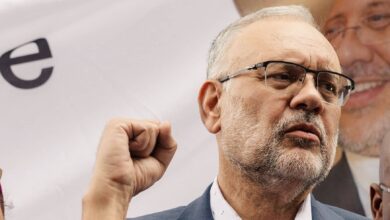
A court in Iran has sentenced Iranian-American journalist Reza Valizadeh to 10 years in prison after he was found guilty of “collaborating with the hostile US government,” according to his lawyer, Mohammad Hossein Aghasi. The Tehran Revolutionary Court issued this verdict a week ago, and the decision can be appealed within 20 days.
Aghasi said he has not been able to meet him since the ruling was pronounced. “The sentence that has been imposed on Valizadeh includes a decade in prison, a two-year ban on residing in Tehran and neighboring provinces, a restriction from leaving the country, and prohibition of membership in political parties.”.
Valizadeh previously worked for the US-funded Voice of America’s Farsi service and was associated with Radio Farda, an outlet under Radio Free Europe/Radio Liberty, which is overseen by the US Agency for Global Media. His recent social media posts suggested he had returned to Iran despite the government’s view of Radio Farda as a hostile entity.
In one message, he said he arrived in Tehran on March 6, 2024, after years of negotiations with the Revolutionary Guard’s intelligence department and wrote, “I came back to my country after 13 years without any security guarantee.”
Initially free for the first six months following his return, Valizadeh was later arrested. The sentencing comes weeks after Iranian authorities arrested leading activist Reza Khandan, husband of renowned rights lawyer Nasrin Sotoudeh, along with their daughter. Sotoudeh has faced multiple imprisonments due to her activism over the past decade.
In another incident that sent shockwaves, Kianoosh Sanjari, a former journalist with VOA’s Farsi service, tragically jumped to his death in Tehran to protest against the supreme leader and ongoing crackdowns on dissent. Sanjari had previously demanded the release of four prisoners and threatened self-harm if they were not freed.
Repression against journalists and activists has a long history in Iran, as was seen in the case of Parnaz Azima, a former broadcaster with Radio Farda, who experienced similar restrictions after briefly returning to the country in 2007. Her passport was confiscated, and she endured an eight-month ordeal before being allowed to leave Iran on bail.



